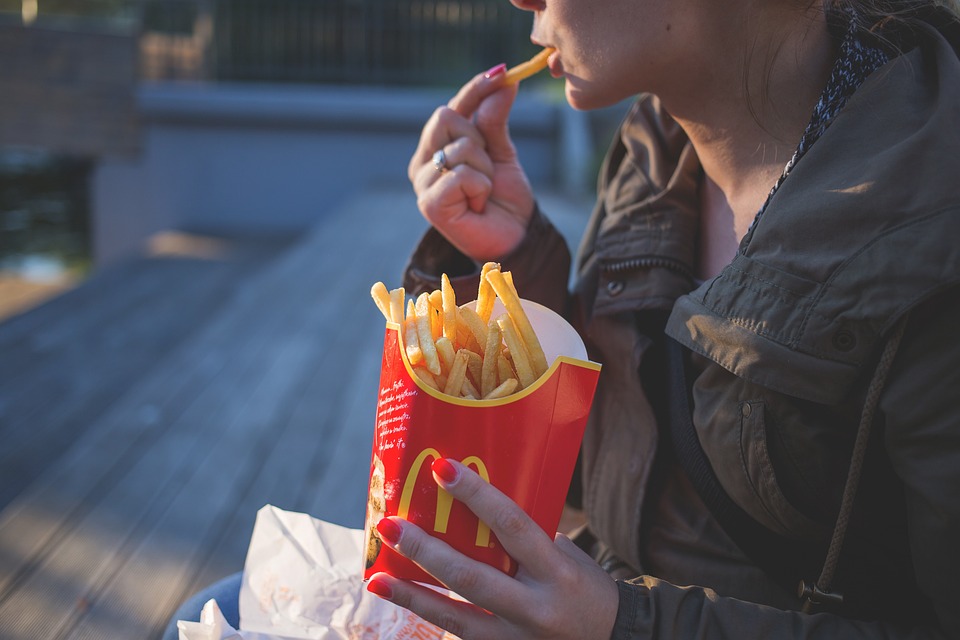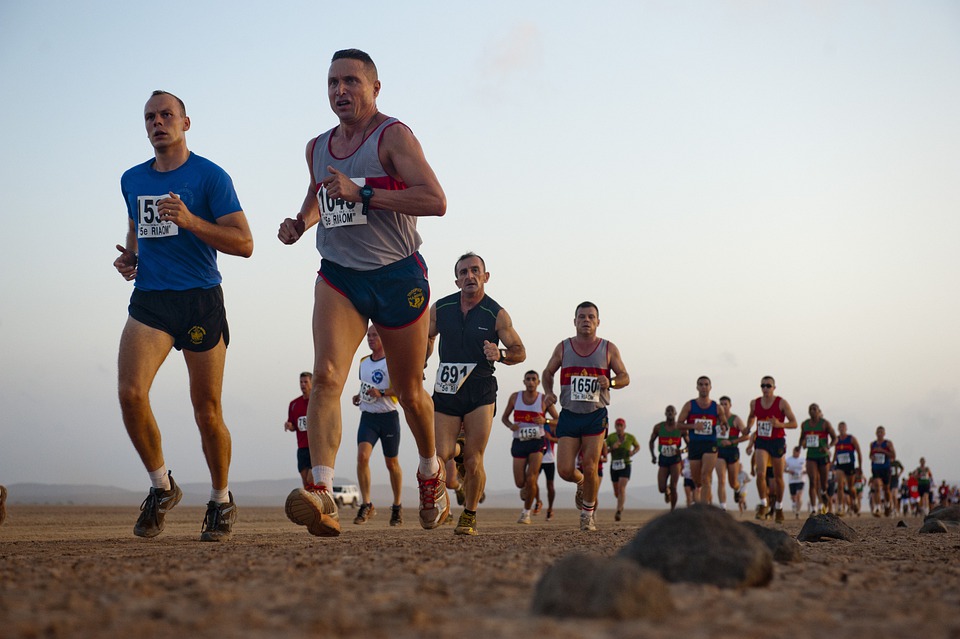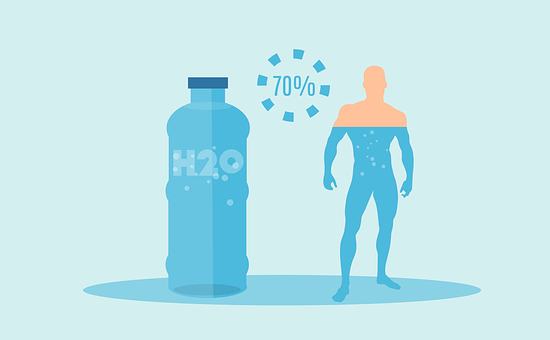
There is sometimes a brief period of time at the beginning when things may seem to get better before they get worse again. Do not be fooled by this false hope—it may make your health problems worse in the long run.
Are there any physical signs that I am not eating enough?
- Low energy
If you find it difficult to walk up the stairs after morning or afternoon sessions, you are not alone.
Some new research suggests that this type of behavior may actually be a sign of a serious health problem. A recent study has found that people who are chronically tired or unmotivated may be suffering from a health condition. This research suggests that fatigue and lack of motivation are not simply a result of aging or not getting enough sleep.
Our bodies need a constant supply of ATP to keep up normal biological functions, not to mention things like working out hard or other activities that use up calories like cleaning the house or walking up and down stairs.
The fatigue may be driven by actually undereating calories OR you may be eating ample calories with a lack of nutrient density. This will may result in micronutrient deficiencies in:
- Thiamin (vitamin Bl)
- Riboflavin (vitamin B2)
- Niacin (vitamin B3)
- Pantothenic acid (B4
- Vitamin B6 (pyridoxine)
- Folate (folic acid or vitamin B9)
- Vitamin B12 (cobalamin)
- Biotin (vitamin B7)
The B vitamins are believed to be energy vitamins because they help convert the energy from food into ATP. This process is carried out by the mitochondria, which is known as the powerhouse of the cell.
- Lack of menstruation/irregular periods
Sounds pretty clutch? Nope. Far from it. Ladies, if you take one thing away from this article, it is this:
Your period is a very good indicator of your overall health, and it can also give you insights into your mental and emotional state.
If your menstrual cycle has become irregular or even stopped completely, this is a direct reflection of how your body is responding to things like nutrition, lifestyle, exercise, environmental exposures, hormonal imbalance, or underlying health conditions.
An additional disadvantage of not having a regular cycle is that you miss out on the performance benefits that come with it. These benefits include increased lean muscle, faster recovery times, and the ability to push with more intensity.
If you are thinking about canceling your monthly subscription, don’t worry, it can be done! Increasing your calorie intake is the first step.
- Insatiable hunger
You find yourself opening the fridge every hour, even though you’re not actually hungry.
Even if you’re eating often, you might not be eating the right things.
We typically come across two situations causing this symptom:
- Eating like a rabbit: Maybe you’re hyper-focused on “clean-eating”, relying merely on low-calorie, high-fibrous fruits, and vegetables all day. While the volume may curb your cravings for a few minutes, you’re not effectively producing the proper fullness hormones like leptin that tell the body “okay, stop shoveling in the food!”
- Sugar Fein: Running off bars, pre-packed snacks, or fruit alone all throughout the day? Sugar, sugar, sugar! The physiological response to sugar in your body is one that is reward-driven. In other words, the more we give it, the more it wants, resulting in continuous blood sugar spikes and consequently, insatiable hunger.
A pro-tip for achieving satiety is to consume a balance of protein, healthy fat, and high-fiber carbohydrates. This balance of nutrients allows the body to achieve satiety.
For example:
- Instead of having only a banana for your morning snack, top it off with a tablespoon of your favorite nut butter
- As a replacement for your chocolate granola bar, consider a clean protein bar that’s lower in sugar and balanced in fat and protein.
- If you love munching on veggies, great! Dip your cucumbers and carrots in some hummus or guacamole for increased fullness!
- Frequent waking during the night
If you’re having trouble falling asleep and staying asleep, you’re not alone. Many people have trouble sleeping through the night.
The brain needs glucose to function and if it doesn’t have enough, it will wake up the body to get more.
We do not advise eating a large steak right before bed, but having a nighttime snack 1-2 hours before bed will improve sleep quality and help to balance cortisol levels.
- “Counting Macros” to a T
Do you often find yourself finishing a meal and immediately thinking about your next opportunity to eat? This is a common symptom among those who count macronutrients.
When people become too focused on getting a specific amount of protein, they may not listen to their bodies if they need more or less.
Many online calculators for nutrition coaching do not take into account the individual’s needs or the micronutrients that could be significantly underestimated.
Athletes are becoming afraid of hunger and trying to avoid it because they don’t want to use up all their calories too early in the day. This can leave them feeling starved by 4:00 pm. This type of restriction not only causes physical stress, but also has a mental and emotional impact that is even more harmful to the body than just eating a little extra food.
Many athletes do not eat enough calories because of real-life experiences.
Your body is always giving you valuable data! It needs more than just the energy from everyday activities to support the demands of training.
A dietitian can help you develop a plan to get enough calories from the right combination of foods so you’re not thinking about food all the time. This can also help your workouts improve.
- No appetite
When you don’t eat enough calories and your metabolism slows down from not eating and working out, you may not feel hungry even though you’re not eating enough.
A quick overview of our hunger hormones real quick:
There are two hormones, leptin and ghrelin, that play a key role in regulating hunger hormones and body fat. Ghrelin is secreted when our cells are hungry to signal that we are hungry. When we eat food, it decreases ghrelin and increases leptin, our fullness hormone.
Two scenarios driving the tendency to undereat calories
- When the body signals hunger and it does not receive food, ghrelin is suppressed as the body goes into survival food. The less food consumed, the more the body adapts and the more unregulated our natural hunger signals become.
- When it comes to exercise, all practices we preach about “listing to hunger cues” go out the door. This is because resistance and aerobic training decrease ghrelin levels and increase levels of PYY, another hunger suppression hormone.
The conclusion is that athletes do not make refueling after training a priority. They either don’t feel hungry or forget to eat because they are fasting after working out. Either way, they are not getting the nutrients they need.
If you eat more, your hunger hormones will eventually adjust. However, it will take some time for your body to get used to having more food since it’s not used to it.
If you slowly increase the number of calories you eat, your body will be able to digest them better and this will mean that the nutrients will be better delivered to your muscles, bones and tissues. In other words, your body will become more efficient, with a better metabolism and hormone balance.
- Avoiding fat
Fat does not make you fat, overeating does.
Athletes often think that eating fat will make them fat, but that’s not true. Although fat has more calories per gram than other nutrients, it doesn’t mean it will make you fat.
Many commercial performance supplements are marketed as fat-free, low in cholesterol, or “light.” However, these claims are often false and made in order to appeal to vulnerable consumers who are looking to become thinner. Don’t believe everything you see on these labels.
We must consider the role an individual’s genetic makeup plays in how that person processes nutrients, like fat.
For example, about 30% of the population’s cholesterol levels may surge with frequent egg consumption. However, scientists have extensively reviewed the scientific literature and reported that for approximately 70% of the population, eating eggs has no discernible impact on blood cholesterol levels.
Dietary fat, including cholesterol, is essential for athletes, especially females, who need it for making hormones, protecting cells, and absorbing fat-soluble vitamins A, D, E, and K.
- Nagging injuries
If the body does not get enough nutrition from food, it will take nutrition from the bones and muscle.
As tissue breaks down, inflammation increases, and muscles cannot effectively repair themselves, the result is a host of recurrent injuries like tendinitis, muscle strains, and stress fractures.
It is not only important to consume the right amount of protein and calories to prevent recurring injury, but there is also a lot of evidence to suggest that increasing protein supplementation can help prevent and improve injury in endurance athletes.
Although natural anti-inflammatory supplements can provide relief for occasional soreness or acute injuries, they should not be used as a replacement for calories when someone is not eating enough.
RED-S: The Danger of Under-Fueling
The endorphins you get from working out hard keep you coming back to the gym. There’s something special about the feeling you get from working out that makes you want more.
If you are frequently training, you need to make sure you are giving your body the nourishment it needs. If you don’t, it can have serious consequences.
This article discusses the dangers of not eating enough before exercising, a problem that affects both professional and amateur athletes.
A Primer
Athletic health and performance for decades has been well-recognized with the importance of proper fueling for sports being a cornerstone.
The term “Female Athlete Triad” was coined by the American College of Sports Medicine (ACSM) to describe the interrelationship between menstrual dysfunction, low energy availability (with or without an eating disorder), and decreased bone mineral density (BMD) in adolescent and young adult female athletes. This term is used to describe the observed declining performance, increasing amounts of injuries and stress fractures, and difficulties getting through games and practices in these athletes.
The Triad is represented by a spectrum where athletes could present at any point along the continuum, from having optimal energy availability, eumenorrhea, and optimal bone health, to having low energy availability with or without an eating disorder, functional hypothalamic amenorrhea, and osteoporosis.
The Triad is often caused by a lack of energy, either from poor diet or not enough exercise. This can lead to problems such as growth issues, muscle recovery, and an inability to maintain a healthy weight.
The problem was that athletes were not taking in enough energy to match the amount of work they were doing. This caused problems with their performance and health over time.
Operationally, energy availability (EA) is defined as follows:
The amount of energy available for the body to use is equal to the amount of energy that is taken in through food minus the amount of energy that is expended through exercise divided by the amount of fat free mass.
The number of calories you burn during exercise is determined by how active you are during the workout and how much fat-free mass you have. Fat-free mass is the weight of your bones, muscles, and organs.
The evidence suggests that the amount of energy required for healthy physiological function is typically achieved at an energy intake of 45 kcal/kg of fat-free mass per day. While there may be differential responses between the various body systems, many of these systems are substantially impacted at an energy intake of less than 30 kcal/kg of fat-free mass per day, making this historically a targeted threshold for diagnosis for low-energy availability. This tends to be the level where you are forcing your body to run at a deficit, resulting in slow destruction and/or reduced efficiency.
Although the Female Athlete Triad is most prominent in young girls, low energy availability is a concern for anyone who is trying to train hard while under-eating. The underfed athlete is a false image for anyone who is trying to make the most of their hard work.
Your body is a miraculous machine that doesn’t just stop working when it doesn’t have enough fuel. Instead, it starts to use up its stored energy to keep going. If you don’t replenish its energy stores, your body will start to suffer.














